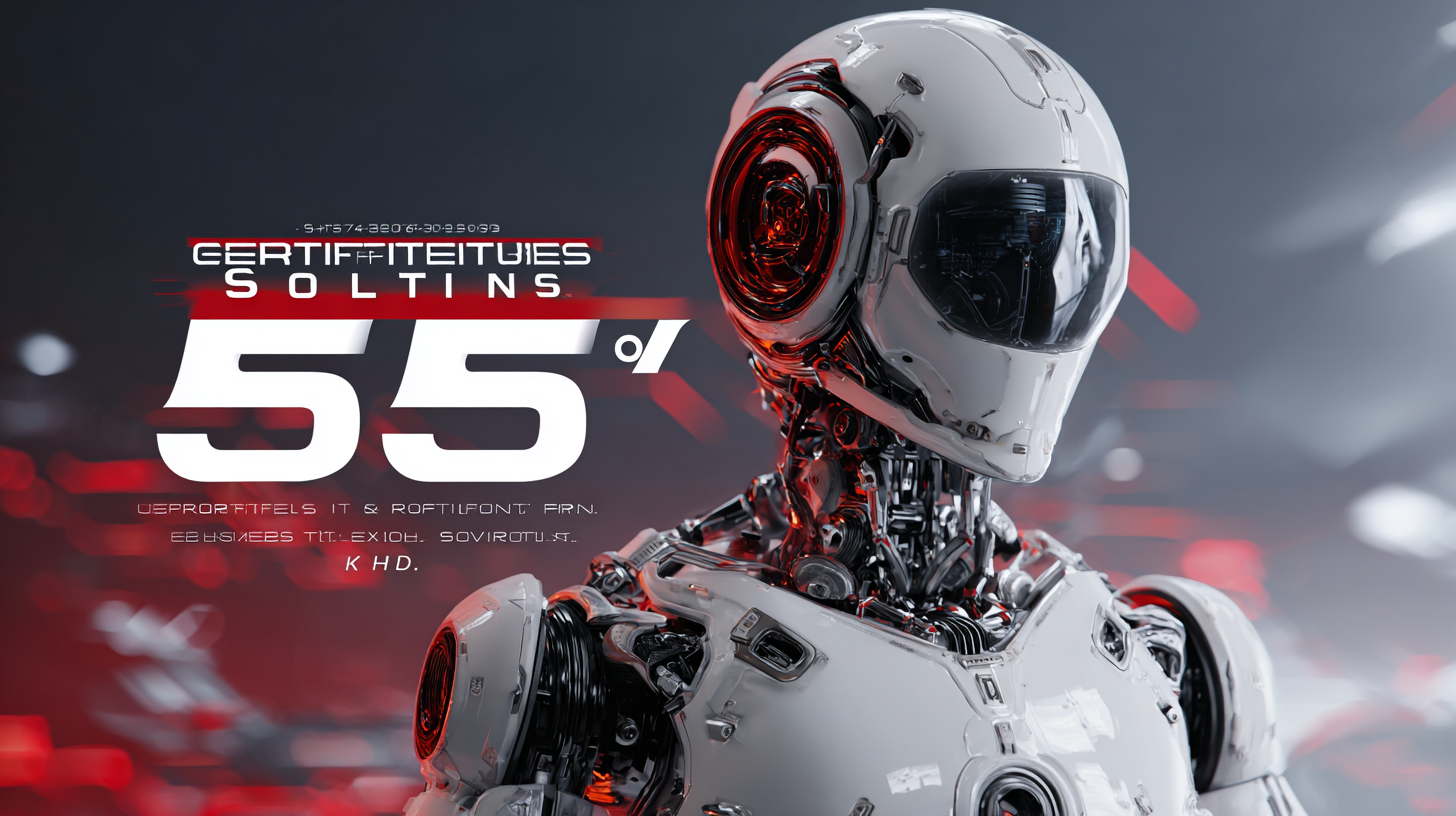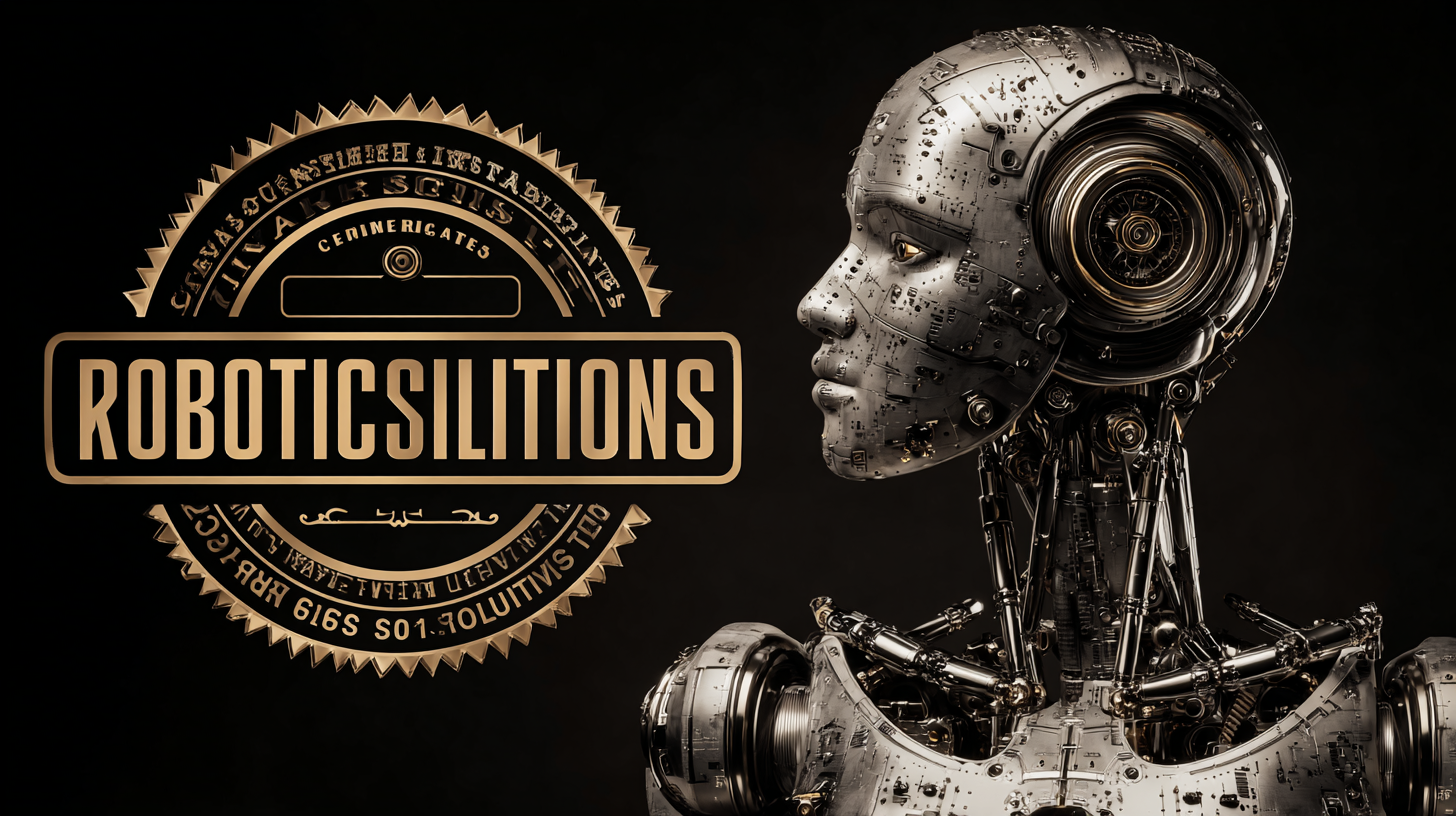

14, Raghava Enclave, Transport Road, Secunderabad, Hyderabad (500009)
©2024 All Rights Reserved by excitechrobot.com
In the rapidly evolving landscape of technology, the demand for cutting-edge Robotics Solutions continues to surge as businesses strive for increased efficiency and innovation. As we step into 2023, professionals interested in leveraging these advanced solutions must navigate a complex array of certifications that can bolster their credibility and expertise. Understanding the essential qualifications not only enhances one’s knowledge but also ensures that organizations can implement the best practices in robotics. This blog will explore five crucial certifications that can empower individuals and teams, enabling them to stay ahead in the competitive market and make informed decisions when integrating robotics into their operations. By highlighting the significance of these credentials, we aim to equip readers with the insights necessary to optimize their approach to Robotics Solutions this year.

In 2023, the landscape of robotics solutions is rapidly evolving, making it essential for companies to stay updated with the necessary import certifications. These certifications not only ensure compliance with regulations but also enhance the overall quality and safety of robotics systems.
According to a recent report by the International Federation of Robotics, the global market for automation and robotics is projected to reach $210 billion by 2025, highlighting a significant growth opportunity for businesses that prioritize certification.
Key certifications such as ISO 9001 ensure that manufacturing processes meet high-quality standards, while CE marking demonstrates conformity to health and safety requirements within the European market. Furthermore, ISO 13485 certification is crucial for companies dealing with medical robotics, as it specifies requirements for a quality management system in the medical device sector.
Data from the Robotic Industries Association indicates that organizations that hold relevant certifications experience fewer compliance issues and greater market acceptance, making these certifications vital for any company seeking to import innovative robotic solutions effectively.
When it comes to importing robotics solutions in 2023, understanding international standards is crucial for ensuring compliance and quality. Various certifications serve as benchmarks for safety, quality, and performance, reflecting the increasing complexity and sophistication of robotic technologies. Familiarity with these standards not only helps in determining the credibility of suppliers but also minimizes risks associated with non-compliance.

For businesses looking to import robotics, several key certifications stand out. The ISO 9001 certification, for instance, signifies robust quality management systems, ensuring that products consistently meet customer and regulatory requirements. Meanwhile, compliance with the ISO/IEC 80601 standard can enhance the safety of robotic devices used in medical applications, reassuring buyers of their effectiveness and reliability.
Moreover, understanding directives from organizations like the International Electrotechnical Commission (IEC) can guide importers through the labyrinth of technical standards that govern electrical equipment, making the import process smoother and more efficient. By prioritizing these international certifications, businesses can not only secure the best robotics solutions but also foster trust with their clientele.
Navigating the intricacies of trade regulations for robotics technology in 2023 is crucial for businesses aiming to import cutting-edge solutions. As robotics continues to evolve and integrate into various sectors, understanding the compliance landscape is essential. Different countries impose specific import regulations that can significantly impact the flow of robotic technologies. Importers must be well-versed in tariffs, safety standards, and quality certifications to ensure smooth entry into the market.
Moreover, engaging with regulatory bodies and staying updated on changes in legislation can provide a competitive edge. The robotics industry is not only subject to traditional trade regulations but also to stringent safety and environmental standards. This necessitates thorough documentation and validation processes. Importers should prioritize building strong relationships with manufacturers and suppliers who understand these regulations, ensuring that all products meet the required criteria before crossing borders. By doing so, they can avoid delays and costly penalties, positioning themselves as trusted players in the dynamic field of robotics technology.

Certifications play a crucial role in ensuring the quality and reliability of robotics solutions in 2023. According to a recent report by the International Federation of Robotics (IFR), companies utilizing certified robotic systems have seen a 30% decrease in operational failures compared to those relying on non-certified alternatives. This highlights how certifications can be a benchmark for quality, safety, and performance, thereby having a direct impact on the operational efficiency of robotics in various sectors.
Moreover, certifications such as ISO 9001 and ISO 13485 not only signify compliance with international quality standards but also enhance customer trust. A survey conducted by the Robotics Industries Association (RIA) indicates that 67% of businesses prefer to work with certified vendors due to perceived reliability and consistency in product performance. In an industry where precision and reliability are paramount, obtaining essential certifications can be pivotal for companies looking to import advanced robotics solutions that meet both regulatory and consumer expectations.
As the robotics industry continues to evolve, the importance of certifications cannot be overstated. In 2023, global markets are increasingly demanding solutions that not only enhance technological capabilities but also adhere to rigorous safety and quality standards. Future trends in robotics certifications will likely focus on integrating advanced technologies such as artificial intelligence and machine learning into the certification processes. This ensures that the robotics solutions delivered are not just effective but also compliant with international regulations.
To stay ahead in this competitive landscape, businesses should pay attention to emerging certification programs that emphasize sustainability and ethical practices in robotics. These certifications will not only enhance the credibility of the solutions but will also resonate with environmentally conscious consumers.
Tip: Invest time in understanding the certification landscape in your target markets. Engaging with local regulatory bodies can provide insights into emerging trends and requirements that could impact your business strategy. Additionally, consider partnering with certification bodies to ensure your products are compliant from the outset, saving time and resources in the long run.
